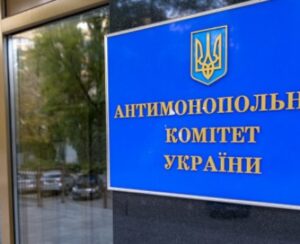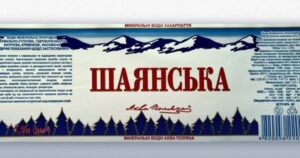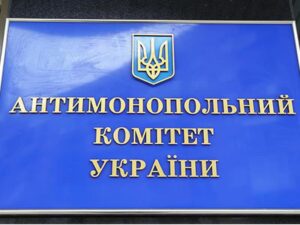
The Antimonopoly Committee of Ukraine (AMCU) has fined Delta Medikel LLC UAH 9.5 million for misleading information on the packaging of the dietary supplement Lactofiltrum.
According to the AMCU, the committee made the decision on June 12 after looking into a complaint from Orisil-Farm LLC, which makes the dietary supplement Eliminal Gel.
The committee ordered Delta Medical to stop the violation within two months of getting the decision.
The AMCU notes that on the packaging of Lactofiltrum, Delta Medical provided false information to an unspecified group of consumers on the Internet, social networks Instagram and Facebook, and on television about the properties of this dietary supplement, in particular, regarding “cleansing the body, restoring microflora, improving skin condition,” as well as that the supplement promotes skin health and improves the condition of allergic diseases, acne, and other inflammatory skin diseases, and poisoning of various origins.
At the same time, Delta Medikel did not provide the committee with sufficient evidence to confirm the information about the properties of the dietary supplement Lactofiltrum, and the Ministry of Health reported that the claims about the therapeutic properties of the supplement were contrary to the law.
The AMCU recalls that in December 2024, Delta Medikel was already held liable for violating legislation on protection against unfair competition.
Delta Medikel, with a 5.4% share, is one of the top five leaders in the market for dietary supplements and dietary additives.

The Antimonopoly Committee of Ukraine (AMCU) fined the pharmacy chain Med-Service Dnipro (Dnipro) UAH 101,000 for failing to submit information on time regarding drugs for the treatment of acute rhinitis.
According to the AMCU, the decision was made on June 12.
During the investigation of the case, which was initiated on the grounds of violation of the legislation on the protection of economic competition in the market of medicines that can be used to treat acute rhinitis, the committee sent a request to the pharmacy to provide information on the interchangeability of medicines within 10 days, but Med-Service Dnipro responded with a delay of seven days.
When determining the amount of the fine, the AMCU took into account mitigating circumstances and the absence of intent in the actions of the pharmacy chain.
Med-Service DNEPR LLC, EDRPOU code 41606497, was registered in 2017. 90% of the company is owned by Med-Service Group LLC.
The ultimate beneficiary is Oleg Tokarev.

The Antimonopoly Committee of Ukraine (AMCU) fined Aquapolyana LLC more than UAH 3.3 million for placing information about the medicinal properties of the product on the labels of Shayanska water without proper evidence, which could have given the company an unfair competitive advantage, the committee’s press service reported.
According to the report, during the investigation, the AMCU found that Aqua-Polyana distributed information on its product labels that could mislead consumers. In particular, the packaging of Shayanska water , unconfirmed medical indications for its use were indicated, including the treatment of gastric and duodenal ulcers, hepatitis, cholecystitis, angiocholitis, chronic pancreatitis, as well as metabolic disorders such as obesity, gout, oxaluria, and phosphaturia.
Aqua-Poliana was unable to provide the AMCU with adequate evidence to confirm the medical indications stated on the Shayanska water label.
According to the Ukrainian Research Institute of Rehabilitation and Balneology of the Ministry of Health, some of these claims were not verified during clinical trials of the product.
In addition, according to a survey conducted by the AMCU, such information could influence consumers’ decisions to purchase water.
As a result, the company could gain a competitive advantage over other mineral water producers not through product quality, but through the dissemination of inaccurate data. For this violation, the company was fined UAH 3,316,752.
The company stopped spreading false info and provided an updated water label. This was taken into account when determining the amount of the fine.

The Antimonopoly Committee of Ukraine (AMCU) fined Bauer Medical GmbH Subsidiary Company (Ivano-Frankivsk) a total of UAH 300,000 for false information on the packaging of Heparin Dr. Bauer cream in 25-gram tubes.
According to the AMCU, the committee concluded that the information stating that this cream is an “anti-varicose, anti-edema, and tonic agent” is false and misleading. At the same time, the company did not provide the committee with sufficient evidence to confirm the information about the properties of the cosmetic product.
At the same time, the company acknowledged the violation, ceased it, and recalled and returned the relevant products, which was taken into account by the committee when calculating the amount of the fine.
The AMCU specifies that the company was fined UAH 100,000 for violating the law on protection against unfair competition and another UAH 200,000 for violating the legislation on protection of economic competition.
LLC “Subsidiary Company Bauer Medical GmbH” was founded in 2001 and is engaged in the retail sale of pharmaceutical and cosmetic products. The ultimate beneficiary of the company is Oksana Shevchenko.

The Antimonopoly Committee of Ukraine (AMCU) has authorized Agrolife GmbH (Hamburg, Germany) to acquire a stake of more than 50 percent in AMBER AGRO LLC (Mykolaiv).
According to the committee’s website, the AMCU made the relevant decision at a meeting on Thursday.
According to the data of Opendatabot service, Amber Agro LLC was established in 2008 in Nikolaev. It specializes in the cultivation of grains and legumes, oilseeds, as well as the production of ready-made animal feed.
The company’s revenue in 2023 amounted to UAH 19.33 mln, net loss – UAH 9.79 mln, debt obligations – UAH 49.52 mln. Assets are estimated at UAH 16.68 mln. The company employs 19 employees. The authorized capital is UAH 3.02 million. The ultimate beneficiary through the Cyprus-based Inkomela Limited is Boris Skiba. Earlier he was listed among the beneficiaries of Agrolife GmbH.
Agrolife GmbH, according to information on its website, is a supplier of oilseeds, grains and feed additives for livestock on the markets of Germany, the EU and Ukraine. Agrolife GmbH together with Danish Fermentationexperts AS are the founders of European Protein Ukraine LLC (Kiev region).

The Antimonopoly Committee of Ukraine (AMCU) has fined Smaragd LTD UAH 17,704,710 for violating the legislation on protection against unfair competition, in particular for disseminating false information on the labels of Buvette 3 (Vital) mineral natural table water, the regulator’s press service reports.
According to the AMCU’s decision, Smaragd Ltd. was found guilty of violating Art. 15-1 of the Law “On Protection Against Unfair Competition”, as it disseminated false information misleading consumers about the properties of Buvette 3 (Vital) still and low-carbon mineral table water, which was placed on 0.5 l, 0.75 l, 1.5 l, 1.7 l bottles.
According to the Opendatabot service, Smaragd LTD was registered in 2004 in Kremenchuk, Poltava region, and in 2021 the company changed its legal address and moved to Dnipro, Dnipro region. The company specializes in the production of bottled soft drinks and mineral waters. It owns the Buvette trademark.
In 2023, the company’s revenue amounted to UAH 769.77 million, net profit – UAH 6.33 million, and debt obligations – UAH 752.13 million. The plant’s assets are estimated at UAH 944.63 million. The company employs 252 people. The authorized capital is UAH 65 million.
The beneficiaries of the company are Yevhen Sharinov and Yevhen Dveris through the Cyprus-based Eliay Investments Limited.